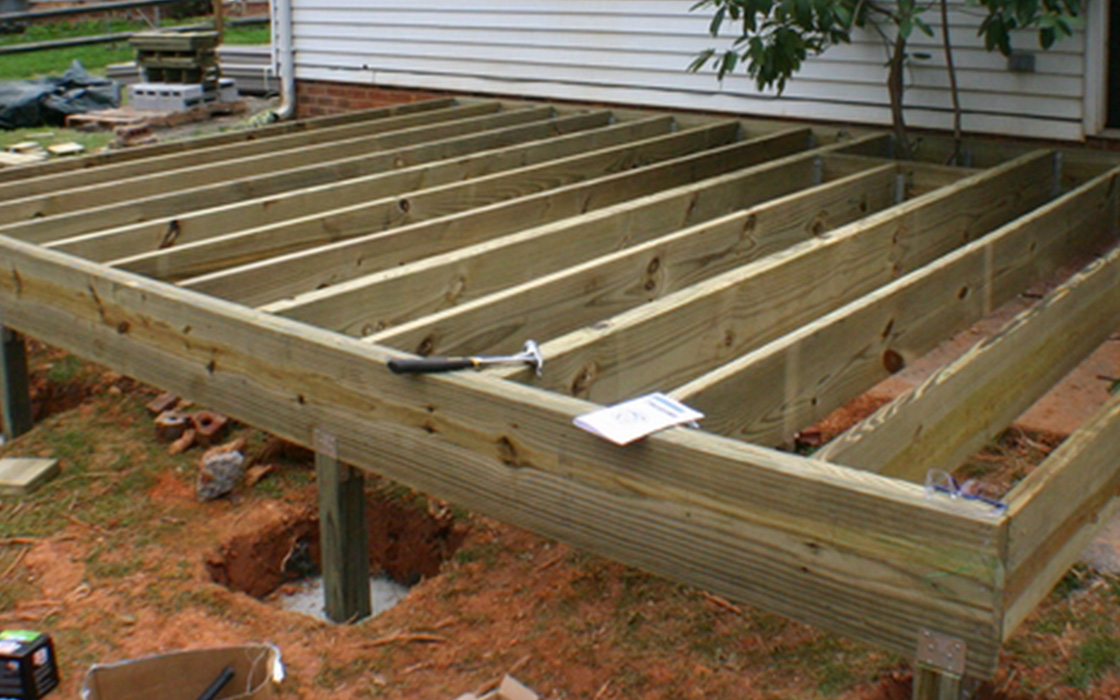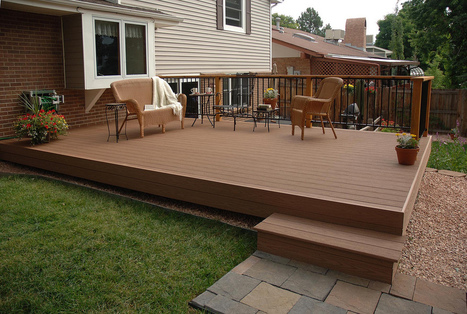Exactly how to Select the Right Products for Your Deck Installation Job
Choosing the proper products for your deck setup job can appear challenging. There are various aspects to think about, from toughness and upkeep to aesthetic appeals and environmental effect. The option between traditional wood and composite products, each with its very own collection of benefits and disadvantages, can be especially challenging. The secret is to stabilize your spending plan, design preferences, and way of living requires to create a deck that will boost your outdoor room for several years ahead.
Understanding the Various Sorts Of Deck Products
When beginning on a deck installation project, the option of products becomes an essential choice. Compound products, on the other hand, are a blend of wood and plastic, offering toughness and resistance to weather components. By understanding these differences, property owners can make a much more educated choice on the most ideal deck material for their details demands.
Evaluating the Resilience and Maintenance Demands of Deck Materials
Examining the sturdiness and maintenance needs of deck products is a vital step in deck installation. Durability entails the material's capacity to hold up against extreme weather condition conditions, wear and tear, and its long life.
Comprehending maintenance needs is similarly essential. Some products need regular securing or tarnishing to preserve their appearance and stand up to dampness damage, while others, like composite decking, require less maintenance. By assessing these factors, one can pick one of the most appropriate outdoor decking product, guaranteeing a balance in between longevity, maintenance requirements, and aesthetic allure.
Cost Evaluation: Comparing Timber and Compound Decking
Although expense might initially appear like a secondary problem, it is a significant variable when comparing wood and composite outdoor decking. Wood, typically a less costly choice, has a reduced upfront expense. Over time, maintenance costs can gather, possibly making wood more costly in the lengthy run. These upkeep prices may consist of discoloration, sealing, or replacing harmed boards. On the other hand, composite outdoor decking, while costlier at first, requires much less maintenance, potentially decreasing long-lasting costs. Yet, it's vital to bear in mind that composite decking isn't impervious to damage, and substitute expenses can be high. As a result, potential deck proprietors have to consider their spending plan and willingness to maintain their decks when choosing between wood and composite decking.
Aesthetic Appeals and Design Flexibility of Decking Products
Natural wood decking supplies a timeless, classic appearance, while composite materials offer a large range of colors and structures to match varied preferences and designs. Compound products, while much less adaptable in layout, are still versatile sufficient for the majority of deck designs. These factors, therefore, are important factors in the option of decking material.
Environmental Impact of Decking Materials
When choosing decking products, one have to take into consideration not just looks and longevity, yet additionally the ecological effect. It is very important to examine the sustainability of materials and explore recycled decking alternatives. In addition, recognizing the prospective effect on local ecosystems will make certain an extra ecologically accountable choice.
Assessing Product Sustainability
In the world of deck building and construction, assessing material sustainability is an important action. Composite outdoor decking products often combine wood and plastic, decreasing the demand for new lumber however boosting dependence on fossil gas - deck installation. Hence, the selection of outdoor decking products need to stabilize capability, aesthetics, cost, and sustainability to ensure a responsible and long-lasting installation.
Recycled Outdoor Decking Alternatives

Compound outdoor decking is specifically popular because of its longevity and ease of maintenance. It's resistant to rot, bugs, and fading, making it a resilient alternative. Recycled plastic outdoor decking, on the other hand, is highly resilient and needs very little maintenance. While these materials might lug a greater initial cost, their longevity and decreased environmental impact make them a smart investment for the eco-conscious house owner.

Influence On Local Environments
While the advantages of utilizing recycled products for decking can not be overstated, it's just as essential to think about the broader environmental effects of these choices. The extraction, handling, and transport of products can profoundly affect neighborhood ecosystems. Deforestation for lumber outdoor decking adds to habitat loss and climate modification. Also the manufacturing of composite materials why not look here can release damaging exhausts. Conversely, using recycled or sustainably sourced materials can assist alleviate these results. Furthermore, considering the life expectancy of materials can minimize More Bonuses ecological influence; longer-lasting alternatives call for much less frequent replacement, thus conserving resources. Proper disposal of old outdoor decking is essential to decreasing land fill waste. Essentially, an eco-conscious deck job demands mindful product choice, sustainable sourcing, and responsible disposal.
Making Your Decision: Tips for Selecting the most effective Deck Products
As the short article changes right into the subtopic of "Making Your Decision: Tips for Choosing the most effective Deck Products", it is important to understand the selection of deck materials readily available. Striking an equilibrium between longevity and looks is vital in this selection procedure. The following conversation will assist readers in making an enlightened choice based upon these key factors to consider.
Recognizing Different Deck Products
The task of selecting the appropriate materials for your deck setup can appear daunting because of the substantial range of choices readily available. Comprehending the various products can streamline this process. Wood is a prominent selection, supplying a classic aesthetic and affordability. Sorts of wood utilized consist of pressure-treated lumber, cedar, and redwood. Compound products, made from a mix of wood and plastic, are low-maintenance and resistant to rot and insects. Vinyl or PVC decks are a lot more sturdy and require less maintenance than composite products, but they can look less natural. Aluminum decks are strong, lightweight, and resistant to rot, however they are likewise the most costly choice. Each material has its own benefits and disadvantages, making it vital to consider your details demands prior to making a decision.
Sturdiness vs. Looks Equilibrium
Balancing resilience with visual appeals can check out here be a challenge when picking deck products. The decision often steams down to personal preferences and the deck's planned use. High-traffic locations may necessitate sturdy materials like composite decking, which holds up against deterioration but might lack the all-natural charm of wood. On the various other hand, wood supplies an ageless allure and warmth that artificial products battle to duplicate. However, it calls for much more upkeep and may not last as long. Consequently, house owners need to strike a balance, taking into consideration both the deck's sensible demands and their visual preferences. By doing so, they can ensure their deck stays a useful and appealing exterior space for many years to find.
Conclusion
In conclusion, choosing the ideal products for your deck installation project calls for mindful factor to consider of elements such as sturdiness, maintenance, cost, appearances, and environmental impact. Whether you go with traditional timber or composite materials, your choice needs to line up with your budget plan, design choices, and way of life. Ultimately, the most effective outdoor decking material is one that boosts your outside space and gives pleasure for years ahead.